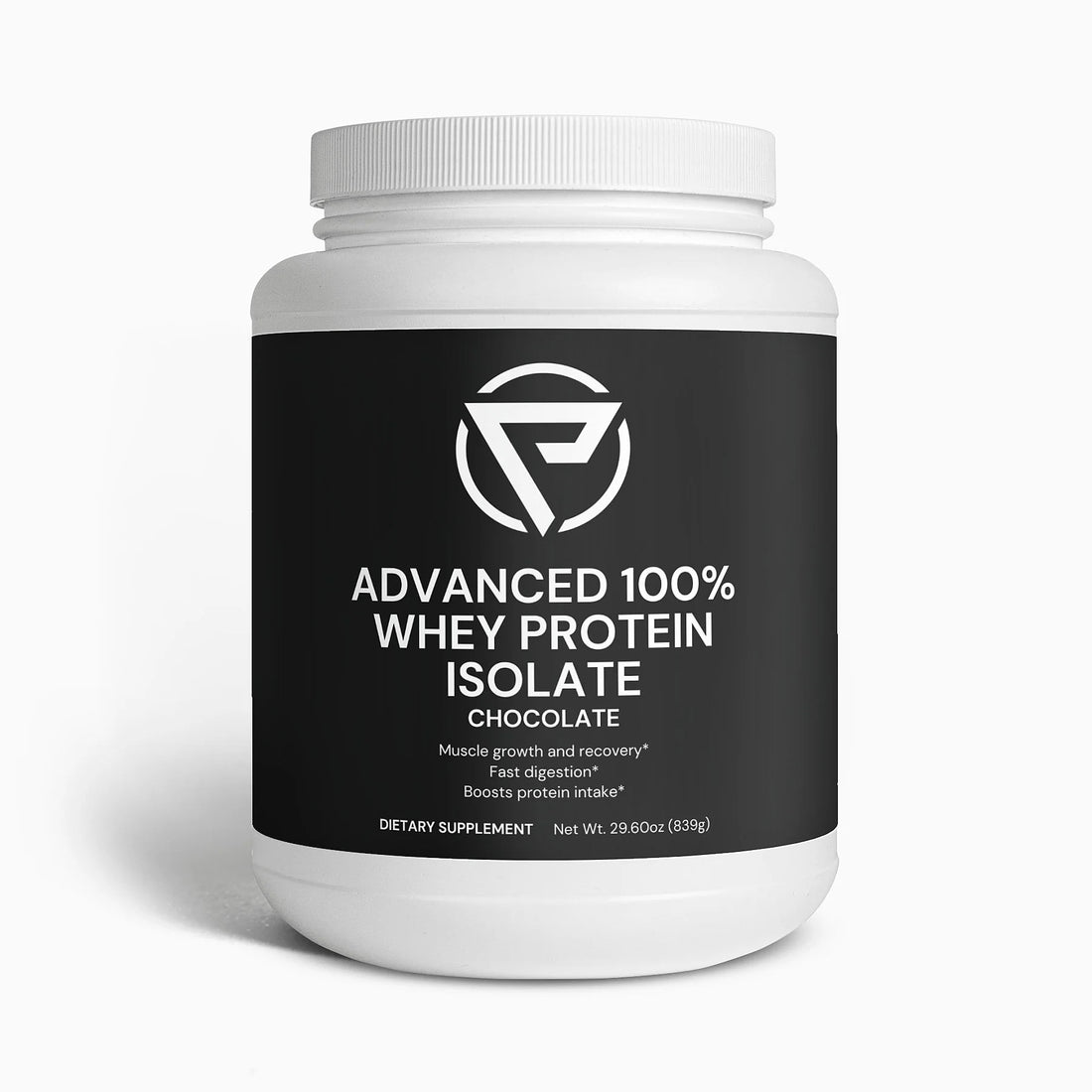
Struggling to See Results? Here's Why Protein is Vital for Your Fitness Journey
When it comes to fitness, many of us focus on the intensity of our workouts, the number of reps, or the hours we spend in the gym. While exercise is essential for achieving your fitness goals, one often overlooked factor plays a crucial role in your success: protein. Whether you're looking to build muscle, lose fat, or improve overall performance, protein is one of the most important nutrients for your body. But why exactly is protein so vital for your fitness journey, and how can you ensure you're getting enough? Let’s break it down.
What is Protein and Why Does Your Body Need It?
Protein is a macronutrient made up of amino acids, which are the building blocks of muscle, tissue, and even enzymes and hormones. Protein is essential for repairing and building muscle tissue, which is crucial after exercise, particularly strength training. Without enough protein in your diet, your muscles won't have the nutrients they need to recover and grow, which can significantly slow down your progress.
Protein is not only important for muscle growth but also for your immune system, hormone production, and even energy levels. It’s a key nutrient in every part of the body and helps maintain optimal health. When you work out, especially during intense training sessions, your muscles undergo microscopic tears. Protein helps repair these tears, promoting muscle growth and recovery. This is why getting adequate amounts of protein is essential for anyone serious about fitness.
The Role of Protein in Fitness Goals
1. Muscle Building and Repair
Whether you're lifting weights or doing bodyweight exercises, your muscles are constantly being challenged. This results in small tears in your muscle fibers. Protein helps to repair these fibers, making them stronger and bigger. This process is called muscle protein synthesis, and it’s essential for building lean muscle mass.
Without enough protein foods in your diet, your body may struggle to repair muscle tissue effectively, leading to slower recovery and less noticeable gains. For optimal muscle-building, aim for a consistent intake of protein throughout the day, particularly after workouts when your body needs it the most.
2. Fat Loss and Metabolism
Protein isn't just for muscle-building; it also plays a vital role in fat loss. It has a higher thermic effect than fats or carbohydrates, meaning your body burns more calories digesting protein than it does processing the other macronutrients. Additionally, protein helps regulate your appetite by promoting feelings of fullness and satiety, which can prevent overeating and aid in weight loss.
When you’re in a caloric deficit (eating fewer calories than you burn), your body needs to maintain muscle mass while burning fat. Consuming enough protein helps protect lean muscle, ensuring that you’re losing fat and not muscle. This is crucial for maintaining a toned, lean physique.
3. Improved Performance and Recovery
The importance of protein in muscle recovery can’t be overstated. After an intense workout, your muscles need time and proper nutrition to repair and grow. If you’re not consuming enough protein, you may experience muscle soreness, fatigue, and longer recovery times. This can affect your next workout, making it harder to perform at your best.
Proper protein intake helps speed up recovery, reduce muscle soreness, and improve your ability to perform high-intensity workouts. Including protein foods in your meals after exercise will give your body the building blocks it needs to recover faster and be ready for your next training session.
How Much Protein Do You Really Need?
The amount of protein you need depends on several factors, including your age, weight, activity level, and fitness goals. For most individuals looking to build muscle or improve athletic performance, a good starting point is about 1.2 to 2.2 grams of protein per kilogram of body weight. This means if you weigh 70 kg (154 pounds), you should aim for between 84 and 154 grams of protein per day.
However, athletes or people with high-intensity exercise routines may require more. If you’re trying to lose fat while maintaining muscle mass, it’s also a good idea to increase your protein intake. Higher protein diets help preserve lean muscle while your body burns fat.
Best Sources of Protein
Getting enough protein isn’t just about drinking protein powder; there are many excellent sources of protein that you can incorporate into your diet. Here are some of the best options:
1. Animal-Based Protein Sources
- Chicken Breast: Lean and packed with protein, chicken breast is a favorite among fitness enthusiasts.
- Eggs: Eggs are a complete source of protein, meaning they contain all nine essential amino acids your body needs. They are versatile, affordable, and highly nutritious.
- Turkey: Another lean protein source, turkey is low in fat and rich in essential amino acids.
- Fish: Salmon, tuna, and cod are great sources of protein, and they provide heart-healthy omega-3 fatty acids.
- Beef: Lean cuts of beef are packed with protein and can support muscle growth and recovery.
2. Plant-Based Protein Sources
- Legumes: Beans, lentils, and chickpeas are excellent sources of plant-based protein and fiber.
- Tofu and Tempeh: Both are made from soybeans and offer a significant amount of protein. Tofu is a versatile ingredient, while tempeh is denser and more protein-rich.
- Quinoa: A complete protein, quinoa contains all nine essential amino acids and is also gluten-free.
- Nuts and Seeds: Almonds, peanuts, chia seeds, and hemp seeds are great for snacking and provide a healthy dose of protein.
- Seitan: A wheat-based protein, seitan is an excellent plant-based alternative to meat and is often used in vegetarian and vegan dishes.
3. Protein Powder
While whole foods are always the best source of nutrients, protein powder can be a convenient way to supplement your intake, especially if you're struggling to meet your protein needs through food alone. There are many types of protein powder available, including:
- Whey Protein: The most popular protein powder, whey protein is fast-digesting and ideal for post-workout recovery.
- Casein Protein: Slower to digest, casein is a great option before bed, as it provides a steady release of amino acids throughout the night.
- Plant-Based Protein: If you're vegan or lactose-intolerant, plant-based proteins like pea, rice, or hemp protein are excellent options.
How to Incorporate Protein into Your Diet
Incorporating protein foods into your meals is easier than you think. Here are some simple ways to ensure you’re getting enough:
- Breakfast: Add eggs or Greek yogurt to your breakfast, or make a protein smoothie with protein powder, fruits, and nuts.
- Lunch: Include a lean protein like chicken, turkey, or tofu in your salads, wraps, or sandwiches.
- Dinner: Make protein-rich dishes like grilled salmon, lentil soup, or stir-fried vegetables with tempeh.
- Snacks: Keep protein-rich snacks like nuts, protein bars, or cottage cheese on hand for a quick protein boost throughout the day.
Conclusion
If you're struggling to see the results you want from your fitness routine, it might be time to reassess your protein diet. Protein plays a vital role in muscle growth, recovery, fat loss, and overall performance. Ensuring you’re consuming enough protein foods and supplementing with protein powder when needed can have a significant impact on your fitness journey. By understanding the importance of protein and incorporating quality sources of protein into your daily meals, you’ll be well on your way to achieving your fitness goals.
Remember, consistency is key, so make protein a priority in your nutrition plan. Your body will thank you with stronger muscles, better performance, and faster recovery!
